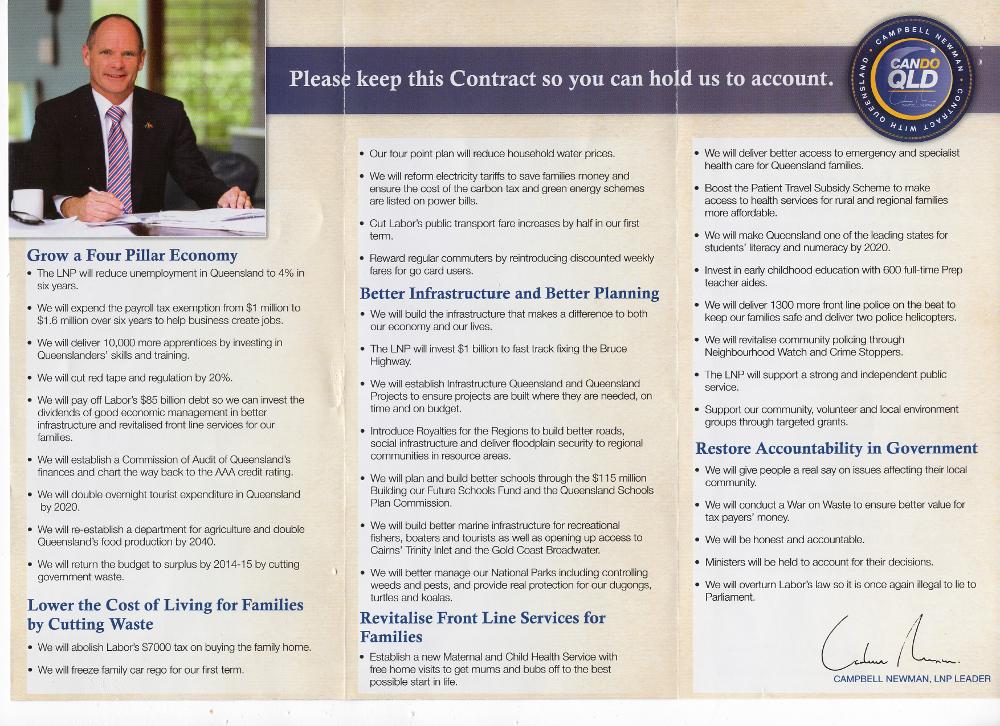Australia’s TPP involvement (an update on my meeting with DFAT)
I had a very fruitful discussion on Tuesday with three of DFAT’s Trans-Pacific Partnership negotiating team.
Most of my concerns were addressed directly, one (software patents) was not – but not as a result of negotiation secrecy, and I was greatly relieved to hear the negotiators tell me their ground rules for the negotiations. I have an opportunity to provide input on software patents, and I will do that within the next few days.
The first concern that the Deputy (Secretary?) for negotiations addressed was the complaint about secrecy. Sadly, it appears that this level of secrecy is standard operating procedure for a free trade agreement – something that the negotiating parties agreed to at the very start of the process. It is my opinion that this approach must change. The world saw with ACTA, SOPA, PIPA (PROTECT IP Act) and CISPA what the trickle-down effect of such secrecy is, and that secrecy was rejected. I appreciate that there is craft to negotiating international agreements, and that there are times when being conservative with the information a party makes available is a valid negotiating tactic. HOWEVER I think our societies would benefit from opening up this process. When information spreads around the world in a matter of minutes via social media, A lie can run round the world before the truth has got its boots on (Terry Pratchett, *The Truth*). When special interests (whether they’re well funded or not) skew negotiations, I believe people who will be affected by the outcome have a right to know, and that their voices must be heard. This is one of the features we’re supposed to have in a democracy.
We then moved on to intellectual property in general. I expressed my concern that Australia’s position on intellectual property chapter appears (via leaks) to be following exactly what the copyright-maximalist USTR proposed, and expressed the view that I did not believe this was in the best interests of Australia’s content creators or consumers. I get a lot of information on software legalities from organisations such as the Electronic Freedom Foundation, Electronic Frontiers Australia, publishers such as Techdirt and Ars Technica, and people who generally move in those spheres. I read the recently leaked text and opinion pieces related to TPP such as New Leaked TPP Text Puts Fair Use at Risk and Trans-Pacific Partnership Agreement could radically alter intellectual property law. One thing which really troubles me about the leaks is that they are just that, leaks, and we have no idea what the real text is, nor what the negotiating notes are. This colours the opinion pieces and what little we see about TPP that appears in so-called “mainstream” media.
The negotiators expressed frustration with the leaks – they’re not allowed to respond or to put their side (-100 for secrecy again). It was then expressed to me that not only is what was leaked not the current text (no great surprise), but that the negotiating notes also do not match DFAT’s position. The lead for the intellectual property chapter emphasized that my concern about attempts to legislate the maximum that is permissible with a work (or other piece of intellectual property), rather than setting out the minimum protections while well-founded was not reflected in the text.
On the matter of software patents, these have apparently not been covered much so far, which I’m surprised by. I was asked for my thoughts on software patents, and after I’ve collected my thoughts (and references!) I will send those in. I hope to have a separate fruitful discussion on this area.
Generally, we then moved on to the topic of pharmaceutical patents and generic medicines. Easy access to generic medicines is something which I believe is of vital importance for every country, not just Australia. Having read the MSF’s blog post expressing significant concerns about the USTR’s proposal to specifically extend the life of pharmaceutical patents I had two concerns in this area. Firstly, that this would drag the Pharmaceutical Benefits Scheme (PBS) into a significant budget shortfall (and blow out the Health budget in general). Secondly, developing nations would be unable to afford life-saving medications which they currently afford via generics. I look at this as much as a social justice issue as anything else: why should Australia, a rather rich nation, deny (through not really caring about costs) the benefits of cheap and easy access to medication to those nations less fortunate than us? I don’t believe that is a supportable position to have.
The flow-on effect of health crises (whether that’s merely a budgetary problem, or something more serious) in developing nations is that we spend more on medical care-related foreign aid that we could and should be spending on other foreign aid areas. I think Australia should be spending more on foreign aid in general, but I don’t think we should have to spend that foreign aid money on propping up pharmaceutical corporations’ profits.
The negotiators assured me that not only do they get advice from PBS/Medicare/Health and AusAID staff on these areas, but that these domain experts attend the negotiating rounds as well. It was a great relief to find this out, as was the fact that DFAT has been advised by the government that TPP text which adversely affects the PBS and AusAID is a “very clear red line” that they must not cross. I was also pleased to hear that DFAT had expressed Australia’s strong concerns on the USTR’s proposal for pharmaceutical patents. [I think that could be negotiator-language for "no damned way", but I am unskilled in the art
]
I asked when they expect the negotiations to be finalised, another 12-18 months is the estimate. However, that is still expected to leave some big political items to be done. I didn’t push on what those items might be.
Process-wise, once the negotiations are concluded, Joint Standing Committee On Treaties (JSCOT) receives the text of the treaty, and holds an inquiry. Following the inquiry, a report is made to Parliament and then it is up to the government of the day whether to ratify the treaty. I asked whether changes could be made to the text as a result of the inquiry’s report…. mostly no, is the answer. With the Australia-USA FTA signed during the Howard government, there were apparently some minor wording changes post-negotiation, but it’s generally not the case that changes get made. “You’d start to unravel the whole document” is how it was expressed.
The Deputy expressed an interest in any suggestions I might have on how to improve DFAT’s communication to the public regarding the TPP. I was a little surprised by this since I thought that there would have been sufficient PR people involved already. On reflection, however, I do have some suggestions on what they might consider doing in order to not only make DFAT’s point of view known by the wider public, but to also take some of the heat out of the twitter storms.
The next round of negotiations occurs in the second half of September, after which I will be in touch with the IP lead. The Deputy assured me that they do post-round briefings with stakeholders and interested parties where they’re quite willing to get into the weeds on matters discussed.
I appreciate the opportunity to talk with members of DFAT’s TPP negotiating team, and their offers of continued interaction on this treaty. I will definitely be staying in touch with them on the Trans-Pacific Partnership.
Finally, a sincere thankyou to Dr Craig Emerson, Minister for Trade, for creating the link.





